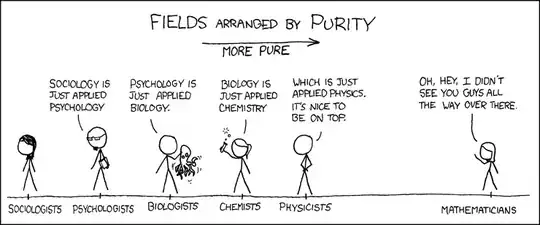I believe this comic from XKCD captures the problem quite succinctly:

The kind of mathematical rigor that one seeks with Gödel's theorems is so utterly distant from the level of rigor used in science that it is hard to make the connection. Gödel's theorems start to tackle the questions that arise as one approaches infinity.
When it comes to things like Theories of Everything, I don't think anyone has any illusions of what that means. If they come up with a Theory of Everything which proves consistent for the next billion years or so, they're pretty darn happy.
Practically speaking, Gödel's theorems also have very strict definitions of what "sufficiently powerful" that they entertain. For example, it only applies to axiom systems written in first order logic. Gödel's theorems don't apply to higher order logic. In practice, few people are truly striving to reach an axiom system in first order logic. That's really more the realm of philosophy, not science.
And once you reach said philosophical boundary, you arrive at the deeper conundrums, such as that of Plato's Cave. Science does not in any way prove anything, if yo are using the definition of "prove" typically found in math or philosophy. Science has a different meaning that it uses when it says "prove." If you get to the point where Gödel's theorems start getting in the way, the greater question of whether science can prove anything to a sufficient degree to invoke Gödel's theorems comes into play.
There have been a few places where I know Gödel's theorems have come into play.
That being said, Gödel's theorems have showed up a few times. The most famous I know of is in the undecidability of spectral gaps. Models used to determine if a model is gapped or gapless demonstrate undecidable behavior. But that's not so much a statement about reality as it is about the models we use to make sense of reality.
And beyond that, there's always mathematical ways to get around Gödel's theorems. My personal favorite is the work of Dan Willard. He explored proof systems with numbers where multiplication is not total (Gödel's theorems assume multiplication is a total function). He starts with "Everything," and then uses division to work downward, rather than starting with "one" and using addition and multiplication to work your way up. In doing so, he carefully sidesteps the ability to use the diagonal lemma at the heart of Gödel's theorems, so they don't apply.
So even if you wanted to reach the level of mathematical rigor we are talking about, and found a way around the issue of science proving things, there is still a workaround. All you need to do is make sure your Theory of Everything is defined using a number system that cannot prove multiplication to be total, and Gödel's theorems dissapear into a poof of logic... literally.
